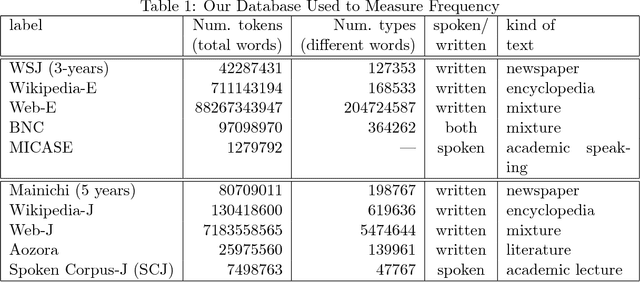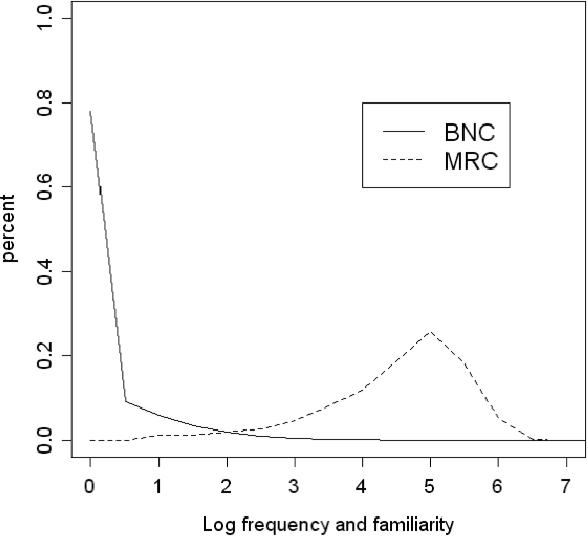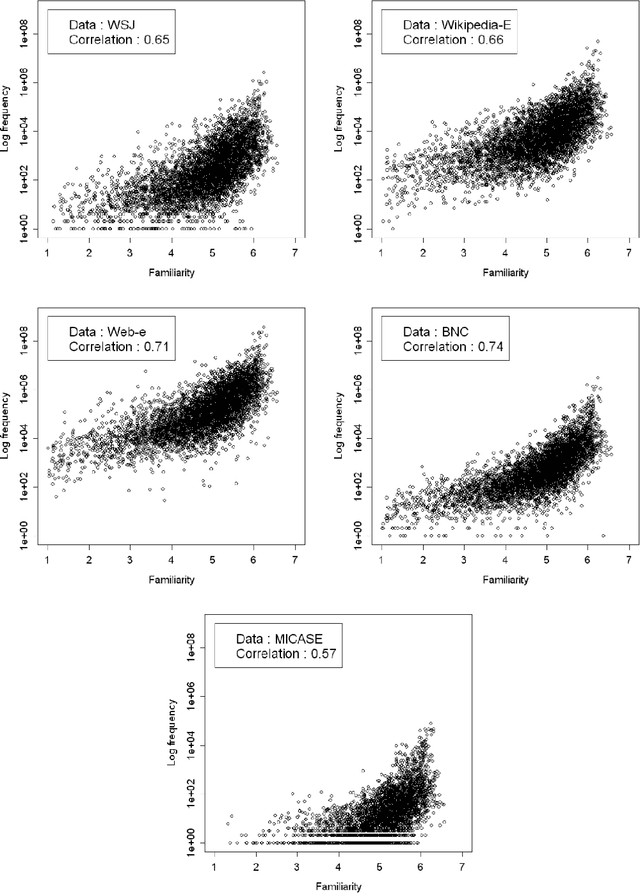Hiroshi Terada
Word Familiarity and Frequency
Jun 09, 2018



Abstract:Word frequency is assumed to correlate with word familiarity, but the strength of this correlation has not been thoroughly investigated. In this paper, we report on our analysis of the correlation between a word familiarity rating list obtained through a psycholinguistic experiment and the log-frequency obtained from various corpora of different kinds and sizes (up to the terabyte scale) for English and Japanese. Major findings are threefold: First, for a given corpus, familiarity is necessary for a word to achieve high frequency, but familiar words are not necessarily frequent. Second, correlation increases with the corpus data size. Third, a corpus of spoken language correlates better than one of written language. These findings suggest that cognitive familiarity ratings are correlated to frequency, but more highly to that of spoken rather than written language.
 Add to Chrome
Add to Chrome Add to Firefox
Add to Firefox Add to Edge
Add to Edge